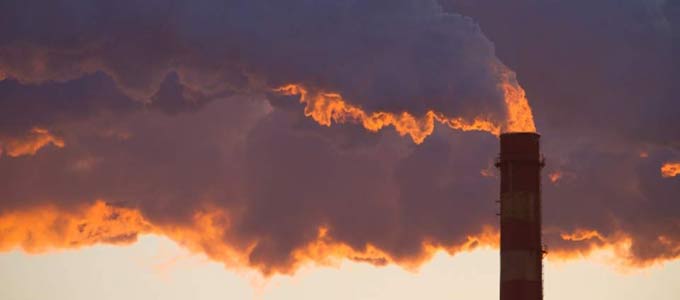November 29, 2024 06:13 (IST)

UN concerned over rising CO2 levels as average hits new high
New York, May 27 (IBNS): Concentrations of carbon dioxide in the atmosphere have crossed a new threshold, the United Nation's weather agency on Monday confirmed, warning that time is running out to curb rising greenhouse gas emissions.
In April, monthly concentrations of carbon dioxide (CO2) in the atmosphere topped 400 parts per million (ppm) throughout the northern hemisphere, the UN World Meteorological Organization (WMO) reported.
“This threshold is of symbolic and scientific significance and reinforces evidence that the burning of fossil fuels and other human activities are responsible for the continuing increase in heat-trapping greenhouse gases warming our planet,” the WMO continued.
CO2 levels first reached 400 ppm in April 2012, but this is the first time the monthly average passed the threshold.
The agency predicts the global annual average CO2 concentration will cross this threshold in 2015 or 2016.
“Time is running out,” WMO Secretary-General Michel Jarraud said in the statement.
“This should serve as yet another wake-up call about the constantly rising levels of greenhouse gases which are driving climate change. If we are to preserve our planet for future generations, we need urgent action to curb new emissions of these heat-trapping gases.”
The UN is leading the effort towards an international, legally binding climate agreement by the end of next year.
United Nations Secretary-General Ban Ki-moon is convening a climate summit on Sept 23 with leaders from Governments, businesses and civil society to raise the level of ambition, catalyze action on the ground and increase political momentum towards such an agreement.
The overall goal of these efforts is to limit the average temperature increase to two degrees Celsius above pre-industrial times.
The Intergovernmental Panel on Climate Change (ICCC) reported in April that to keep global mean temperature to two degrees Celsius, means lowering global greenhouse gas emissions by 40 to 70 percent compared with 2010 by mid-century, and to near-zero by the end of this century.
(Photo: UNEP)
Support Our Journalism
We cannot do without you.. your contribution supports unbiased journalism
IBNS is not driven by any ism- not wokeism, not racism, not skewed secularism, not hyper right-wing or left liberal ideals, nor by any hardline religious beliefs or hyper nationalism. We want to serve you good old objective news, as they are. We do not judge or preach. We let people decide for themselves. We only try to present factual and well-sourced news.
Support objective journalism for a small contribution.
Latest Headlines
Kolkata: BM Birla Heart Hospital offers MICS procedure to patients which promises shorter recovery time and infection risk Wed, Nov 27 2024
Three more polio cases reported in Pakistan Mon, Nov 25 2024
Canada confirms first case of clade I mpox Sat, Nov 23 2024
First bird flu case reported in a child in USA Sat, Nov 23 2024
Plastics treaty: UN experts call for centrality of human rights Fri, Nov 22 2024
UNICEF report warns children could face eight times more heatwaves in 2050 than in 2000 Wed, Nov 20 2024
Toxic air and smog choke Delhi as experts at COP29 in Baku warn how dragging feet on fossil fuel reduction can cause catastrophe Tue, Nov 19 2024
Elon Musk's SpaceX launches Indian satellite on Falcon 9 rocket Tue, Nov 19 2024







